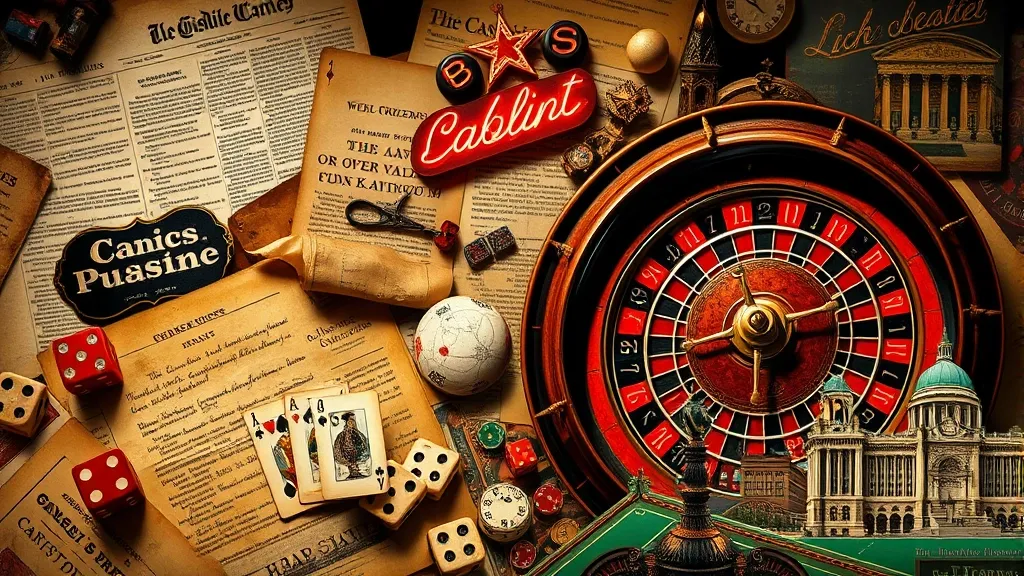Rolling the Dice: Ancient Beginnings and Divine Games
You know, when you think about gambling, it’s easy to picture flashy casinos or high-stakes poker games, right? But honestly, the roots of gambling dig way deeper than that. We’re talking ancient times, like, way back when people believed in gods who were probably just as interested in rolling dice as they were in creating the universe. Can you imagine Zeus sitting around with a group of buddies tossing some bones? Sounds like a party!
The oldest evidence of gambling dates back to around 3000 BC in China. They had these nifty little tiles that were used for a game of chance. It’s wild to think that people were betting on things even back then. I mean, sure, they didn’t have smartphones or online betting, but they were rolling the dice and hoping for the best. It’s like the more things change, the more they stay the same, right?
In ancient Rome and Greece, gambling was a big deal, too. They had dice games, betting on gladiators, and even chariot races. I can just picture a Roman citizen shouting, “I’ll bet you five denarii that Maximus will take the day!” It was all about the thrill of the game, and honestly, who could resist the adrenaline rush? Even the gods were said to participate in these games of chance. Talk about high stakes!
But it wasn’t all fun and games. Many societies placed strict regulations on gambling, fearing it could lead to chaos or, worse, ruin. I mean, can you blame them? You’ve got a bunch of people losing their shirts over dice rolls. It’s like a recipe for disaster. Still, there was something undeniably captivating about the idea of risking it all for a chance at fortune.
As time rolled on, gambling evolved and adapted, just like us humans. From the ancient Egyptians using senet boards to the medieval times with rudimentary card games, it’s clear that the allure of risk and reward has been around for ages. It’s a universal thrill! And hey, while we might not have gods rolling dice for us anymore, the excitement is very much alive.
In conclusion, the ancient beginnings of gambling are as fascinating as they are complex. It’s not just about money; it’s about the thrill, the community, and the stories we tell. So, next time you roll the dice (or hit that “spin” button), remember you’re part of a tradition that’s been around for thousands of years. How cool is that?
The Great Crackdown: When Morality Met Monopoly
Alright, let’s dive into a pretty wild chapter in the saga of gambling laws. Picture this: it’s the early 20th century, and America is buzzing with a mix of excitement and anxiety about gambling. The Gold Rush vibes are still hanging around, but now we’re dealing with a whole new set of issues. Morality and monopoly were about to clash like two titans in a wrestling ring, and trust me, it wasn’t pretty.
So, here’s the scoop. Back in the day, gambling was seen as a bit of a moral failing. You know, the kind of thing your grandma would side-eye you for. Many believed it led to vice and ruin—sounds dramatic, right? But it wasn’t all bad. Some folks thought it was just a harmless pastime, like knitting or binge-watching reality TV (hey, we all have our vices!).
But then, enter the state governments. They started realizing they could cash in on this whole gambling situation. Instead of just shutting it down, they figured, Why not regulate it? That’s where the monopoly part comes in. States began to create their own gambling laws, effectively making themselves the gatekeepers. It was like they turned the whole thing into a club, and you needed a membership card (and a hefty fee) to play.
Now, let’s talk about the infamous crackdown. In the 1930s, the Great Depression hit, and suddenly, the government was like, Hey, we need money! So, they tightened their grip on gambling and started enforcing stricter laws. This was a double whammy—people were losing their jobs, and the fun of gambling was getting snuffed out. It was like taking candy from a baby, but instead, it was dreams of hitting the jackpot.
- States began to outlaw many forms of gambling outright.
- Only a few lucky states like Nevada managed to keep things rolling, thanks to their love for the glitter and glamour of casinos.
- Meanwhile, illegal gambling flourished in the shadows—because, let’s be real, where there’s a will, there’s a way!
Fast forward a bit, and you’ve got the rise of the internet gambling scene. With all the regulations and crackdowns, you’d think people would just give up on their gaming dreams. But nope! They found a way around it, proving that when it comes to gambling, people are always gonna find a way to roll the dice.
In the end, it’s a wild ride of laws, morals, and a bit of rebellion. Who knew that the battle between morality and monopoly could be so entertaining? It’s like the ultimate game of poker, and everyone’s got their chips on the table.
The Digital Revolution: Betting on Bytes and Bandwidth
So, here we are—smack in the middle of the digital age, where the only thing growing faster than my to-do list is the online gambling industry. Seriously, it’s like every time I turn around, there’s a new app or website offering a way to gamble from the comfort of your couch. Who would’ve thought that betting could be just a click away?
It all kicked off in the late ’90s when the internet was still that weird, clunky thing that required a dial-up connection (remember the sound of that modem? It was like a robot trying to sing opera!). Back then, you could find a few sketchy sites where you could place a bet, but it was pretty much the Wild West of online gambling. Fast forward a couple of decades, and now we’ve got legit platforms with fancy graphics and user interfaces that make you feel like you’re in a Vegas casino—minus the overpriced drinks and smoky air.
One of the coolest things about this shift is how it’s made gambling more accessible. You don’t need to hop in your car and drive to the nearest casino anymore. You can just whip out your phone and start playing poker or slots while waiting for your coffee. It’s both convenient and a bit dangerous. I mean, who hasn’t been tempted to play a quick game while pretending to work? Guilty as charged!
Of course, with great convenience comes great responsibility. There’s a lot of chatter about responsible gambling these days, and rightly so. The ease of betting online can lead to some sticky situations if you’re not careful. It’s like ordering takeout at 2 AM—sometimes, it seems like a great idea until you realize you just spent your grocery money on a midnight burger.
And let’s talk about regulations for a sec. Each country has its own set of rules, and they’re all trying to catch up with this fast-moving train. You’ve got some places where online gambling is totally legal and others where it’s like trying to find a needle in a haystack. It’s a complicated landscape, but it’s evolving. Slowly, but surely, lawmakers are figuring out how to keep up with the digital revolution.
So, as we sail through this digital sea of bytes and bandwidth, it’s pretty clear that the gambling world is changing. Whether you’re a casual player or a serious bettor, the online space is here to stay. Just remember to play smart—after all, the house always has the edge, and those pixels can disappear faster than your last winning streak!
The New Frontier: Legal Labyrinths and Future Forecasts
Alright, folks, let’s dive into the wild world of gambling laws today. It’s like trying to navigate a maze while blindfolded and holding a stack of chips—you’re bound to bump into some walls. The legal landscape for gambling has drastically changed over the years, but we’re just scratching the surface of what’s to come. So, what’s on the horizon?
For starters, the rise of online gambling has thrown the whole legal system for a loop. States are scrambling to keep up, and let’s be real, it’s kind of hilarious watching lawmakers try to understand what a “streamer” is. They’re more used to dealing with bingo halls and racetracks than Twitch and eSports. If only they’d picked up a gaming console or two back in the day!
- Regulatory Challenges: With online platforms popping up everywhere, regulations are as tangled as your earbuds after a long day in your pocket. Different states have different laws, and that’s if they even have laws at all! It’s like a patchwork quilt—one state’s allowing sports betting while another’s still figuring out if it should be legal to bet on the weather.
- Future Forecasts: Looking ahead, we might see more federal involvement. Imagine the government stepping in to create a standardized code for gambling. It might sound boring, but it could mean fewer legal headaches for players and operators alike. Plus, who wouldn’t want a nice, tidy set of rules?
- Tech Innovations: Don’t forget about tech! With advancements in blockchain and AI, the way we gamble might look completely different in just a few years. I mean, who knew that the future of gambling might involve a robot dealer who never forgets your birthday?
Of course, all these changes come with their own set of challenges. There’s a lot of talk about responsible gambling and how to protect players, especially the younger crowd. It’s like a balancing act on a tightrope, and we all know how that usually ends—hopefully with fewer falls than we expect!
As we move forward, it’s clear that the gambling laws of the future will require a mix of innovation and caution. So, keep your eyes peeled, because this legal labyrinth is far from over. And who knows? Maybe one day we’ll look back on these times and laugh about how we used to struggle just to place a bet. Cheers to that!



